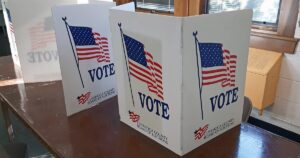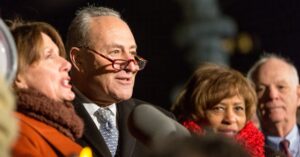Trump Seeks Control Over TikTok's Future in Supreme Court Filing
President-elect Donald Trump has filed an amicus brief with the U.S. Supreme Court, requesting a delay in the January 19, 2025, deadline for ByteDance to divest TikTok due to national security concerns. The brief argues that Trump should be the one to decide whether the app can continue operating in the U.S. after he takes office.
In a move aimed at influencing the future of TikTok in the U.S., Donald Trump filed an amicus brief, seeking control over the app's fate once he resumes office in January 2025, according to Fox News.
The case at hand stems from a law passed earlier in 2024 that mandates ByteDance, the Chinese company that owns TikTok, to divest the app by January 19, 2025. If ByteDance fails to comply, TikTok could be removed from U.S. app stores. The U.S. government raised national security concerns regarding the app’s data handling, citing the potential for Chinese influence over U.S. user data. The law also allows for a 90-day extension of the deadline under specific circumstances.
Trump's brief, filed on Friday, December 28, 2024, ahead of oral arguments scheduled for January 10, 2025, argues that the timing of the divestiture law interferes with his ability to manage national security and free speech matters once he takes office. He contends that he, as the incoming president, should be the one to address the issue, given his unique role in dealing with national security and foreign policy.
Trump Asserts Mandate to Handle National Security and Free Speech Issues
The brief highlights Trump’s belief that the issue presents a unique challenge between free-speech rights and national security concerns. "This case presents an unprecedented, novel, and difficult tension," Trump stated in the brief. He argued that as the "incoming Chief Executive," he is uniquely positioned to resolve this matter in a way that addresses both concerns.
Trump’s spokesperson, Steven Cheung, echoed this sentiment, stating that Trump’s goal is to "save TikTok and preserve American national security" once he resumes office. Cheung emphasized that the timing of the law creates an unnecessary obstacle, especially given Trump’s victory in the November 2024 election. Trump’s electoral mandate, according to his brief, gives him the authority to protect the free-speech rights of Americans, including the 170 million TikTok users in the U.S.
Trump’s filing argues that he alone possesses the "deal-making expertise, electoral mandate, and political will" to negotiate a resolution to the situation. He also noted that his first term was marked by successful policy negotiations, which he believes can be replicated in this case.
Supreme Court Case Could Affect TikTok's Future in the U.S.
The timing of the case is critical, as the U.S. Supreme Court is set to hear oral arguments just nine days before the divestiture deadline is set to take effect. TikTok, in response to the law, filed an emergency application asking the Court to temporarily block the law’s enforcement. TikTok contends that the law raises serious First Amendment issues, as it targets a significant platform for free speech.
In an attempt to address national security concerns, TikTok launched "Project Texas" in 2023, a plan to store U.S. user data on Oracle’s servers within the United States. TikTok CEO Shou Zi Chew defended the initiative, claiming it ensures U.S. user data is managed by Americans and kept safe.
During a meeting with Chew at Mar-a-Lago in December 2024, Trump expressed his support for TikTok and indicated that his administration would review the app's status carefully. "I have a warm spot in my heart for TikTok," Trump remarked, signaling his willingness to negotiate a solution once he returns to office.
Debate Over the Future of Social Media Platforms
The legal battle over TikTok is part of a broader debate regarding the role of social media platforms in American society and their potential for foreign influence. Critics of TikTok argue that the app’s ties to China pose a national security risk, while supporters emphasize the platform’s significance as a space for free expression.
TikTok's efforts to address U.S. security concerns with "Project Texas" are part of an ongoing strategy to stave off potential bans. Despite these measures, the U.S. government remains concerned about the app’s connections to the Chinese Communist Party. TikTok's lawyers argue that the law could have serious constitutional implications, especially as it could affect millions of American users who rely on the platform for communication and content creation.
The outcome of this case could have lasting implications for the way the U.S. handles foreign-owned technology platforms, especially as they become increasingly integral to communication, entertainment, and business.
Trump’s Role in U.S. Foreign Policy
As the incoming president, Trump’s stance on TikTok highlights his broader approach to national security and foreign policy. His brief emphasizes the need for the executive branch to have the final say in matters of foreign relations, particularly when it comes to resolving issues that involve both national security and constitutional rights.
Trump has long been a vocal advocate for preserving American interests, and this case could further solidify his influence on key tech and foreign policy decisions. His administration is likely to be at the forefront of ongoing debates regarding the intersection of national security, free speech, and the global reach of social media platforms.
In conclusion, the U.S. Supreme Court’s decision in this case will play a crucial role in determining whether TikTok remains accessible to American users and who will ultimately have the power to make that decision. With just days left before the deadline, the stakes are high, and the outcome could reshape U.S. policy on foreign-owned technology platforms for years to come.




